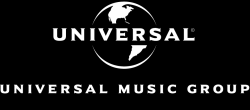Universal Music Settles Payola Probe
 May 11,2006 Satellite Standard Group likes to keep you informed with the issues. If you follow Sirius Satellite Radio and XM Satellite Radio this issue boils your blood. Univesal Music just settled a probe in which they paid "bribes" in order to get music played on radio stations. It is ironic that Sirius and XM have to pay these music companies, who then turn around and pay radio stations to play their music. Something is VERY WRONG with this picture. VIA BusinessWeek Online Universal Music Group Recordings Inc., the world's largest record company, has agreed to pay $12 million to settle a payola case that claimed the company provided vacations, electronics and other bribes to increase radio play for their artists, New York Attorney General Eliot Spitzer said Thursday.
The bribes and gifts were used to gain airplay for songs that included records by Nick Lachey, Ashlee Simpson, Brian McKnight, Big Tymers, and Lindsay Lohan, Spitzer said.
The California-based company agreed to pay the cash to charity along with $100,000 to cover the cost of the investigation and to adopt reforms, Spitzer said. The company didn't admit guilt, but acknowledged "various employees and independent promoters acting on behalf of the company" engaged in the illegal practice, Spitzer said.
"UMG has illegally provided radio stations with financial benefits to obtain airplay and boost the chart position of its songs," Spitzer said in papers filed in state Supreme Court along with the settlement. "UMG has obtained airplay for its songs through such deceptive and illegal practices as bribing radio station employees, on occasion, to play UMG songs, providing a stream of financial benefits to radio stations, to assist with stations' overhead costs or to provide promotional support, on condition that UMG records receive airplay," Spitzer stated. UMG was also accused of "engaging in fraudulent call-in campaigns to increase airplay."
In January 2003, a WFLY-FM program director was provided use of a Miami hotel room for playing "Shoulda, Coulda, Woulda" by Brian McKnight and putting it on the Albany, N.Y., station's playlist, Spitzer said. The room was listed as a contest prize for accounting purposes.
The same program director was provided a Miami hotel stay to play a Nick Lachey song and he received use of a hotel room in New York City in April 2004 along with Yankees tickets.
"We have been working cooperatively with the attorney general's office in resolving these promotion issues and are pleased to have completed the process with this agreement," UMG said in a statement. "The reforms that we have agreed to with the attorney general are consistent with the policies that we voluntarily implemented over a year ago."
The $12 million payment will be distributed through the Rockefeller Philanthropy Advisors to nonprofit groups in New York state to fund music education and appreciation programs.
"Consumers have a right not to be misled about the way in which the music they hear on the radio is selected," Spitzer said. "Pay-for-play makes a mockery of claims that only the 'best' or 'most popular' music is broadcast."
Spitzer said UMG used interns and employees and "outside vendors" to pose as listeners requesting UMG songs. In July 2004 UMG started pushing "Rain on Me" by Ashanti through its Island Def Jam label, paying $3,500 for six weeks. For the first two weeks, WGCI in Chicago and WQHT in New York City each received 25 calls. Forty calls were made to these and other stations in the final four weeks targeting black women between 18 and 24 years old, Spitzer said.
Its Island Def Jam label hired another group to drum up airplay for Ludacris' "Stand Up" at numerous radio stations including CKEY and WBLK in Buffalo and WDKX in Rochester.
UMG has a nearly 26 percent share of the world market and sells one in three albums bought in the United States, according to the court filing. UMG's labels include Interscope Geffen A&M Records, Island Def Jam Music Group, Universal Motown Records Group, UMG Nashville and Verve Music Group. The types of music involved included Top 40, Urban, Alternative Rock and Adult Contemporary.
Spitzer launched a nationwide investigation in 2004 into alleged wrongdoing by music and radio companies. Earlier this year, Spitzer sued Entercom Communications Corp., accusing its executives of running scams to trade cash for airplay of songs.
Entercom has denied the allegations.
Sony Corp.'s music arm has already agreed to pay $10 million to settle with Spitzer, and Warner Music Group Corp. agreed to a $5 million settlement.
5/11/2006 01:54:00 PM
SSG Has Merged. You Can Read All Of The Latest SSG Content By Clicking Here
 
0 Comments:
SSG is not a Financial Advisor. Read Disclosure: HERE
--------------------------------------------------------
Sirius Radio TSS-Radio Blog Sirius Answers
Credit card merchant account
|
|

Search by Label
|
|
|